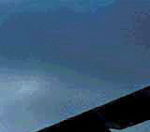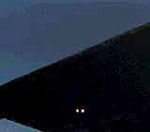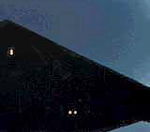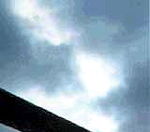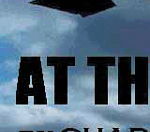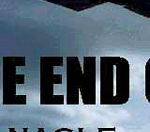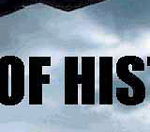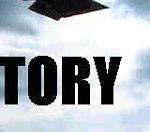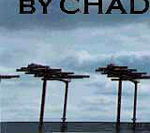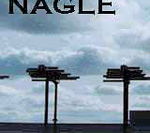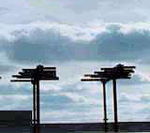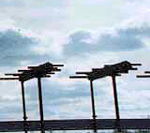CHINA
AND THE US MILITARY
Some
of the American people got really mad when the PRC authorities
took 24 US servicemen and women into custody on April 1st.
They tied yellow ribbons to trees and stood next to their congressmen
and senators to express their outrage and indignation. Lt. Shane
Osborn announced after returning home that he had been "tortured"
in captivity. He hadn’t had a decent night’s sleep in over 24
hours and those ChiComs kept waking him up to ask him questions.
Back home, there must have been some former inmates of Vietnam
POW camps who could really sympathize with Lt. Osborn’s harrowing
torture tale. So we need to send a message to Beijing that the
US military means business. It’s one thing for the brutal leaders
in Beijing to crack down on their own people. But if they mess
with the American people – be afraid… be very afraid. That’s
why I propose the following.
The
Bush administration (on behalf of the American people) currently
plans to outfit the entire US Army with black berets as a way
of raising the flagging morale of that branch of the armed forces.
Formerly, only one unit of the Army wore black berets, the super-elite
Rangers. The black berets delineated the Rangers from the rest
of the Army and symbolized the special training they had to go
through to become Rangers. Obviously, making the black beret standard
issue for the whole Army would likely lower the Rangers’ morale,
but the morale of the Army as a whole would be bound to go up,
at least for a month or two!
What
does this have to do with China? Well, since the Army has ordered
the berets from the PRC, and the American people are so outraged
about the spy plane incident, the Army has a couple of choices.
One option is to rip out the little "Made in China"
tags from all the berets so our regular Army soldiers have no
idea their new headgear isn’t as American as apple pie. Another
option is for the Army to acknowledge openly the origins of the
berets and adopt a more politically useful approach.
When
the US Army receives the approximately 3 million black berets
from the PRC, it should give the berets it doesn’t use to the
Taiwanese. Since 3 million is a lot more than the number of soldiers
in the US Army, and Taiwan supposedly has an army of about 430,000,
by giving half a million black berets to Taiwan and convincing
the Taiwanese to make them part of their army’s uniform, the US
could achieve a tremendous psychological coup and really show
those Chinese Commies that American military solidarity with Jesse
Helms’s "Free China" isn’t to be trifled with.
Imagine
American and Taiwanese soldiers all wearing made-in-PRC black
berets, standing shoulder-to-shoulder in a show of force against
the mainland. What an ominous sight! We could say to Beijing:
"You guys may have made these berets and we may have paid
you for them, but now the Taiwanese are wearing them too, and
we mean business!" Our senior army commanders could hold
a high-profile joint press conference with the Taiwanese army
chiefs wearing their new hats. We could send US Army advisers
to Taiwan wearing the berets as well, and they could sit around
somber military briefing rooms with their Taiwanese counterparts,
planning the defense of "Free China" against the coming
ChiCom onslaught. The strategies that came out of such sessions
would be brilliant, since everyone would be wearing his "thinking
cap."
CHINA
AND THE US DEFENSE INDUSTRY
Beijing
has complained publicly about Washington’s decision to sell military
hardware to Taiwan, including four destroyers and some submarines.
The US was going to sell Taiwan one of its most advanced combat
radar systems, but ultimately decided against it. Yet still
the government of the PRC complained.
We
need to get tough with these ChiComs. When they complain about
our sale of weapons to Taiwan, we need to tell them to shut up
and stop griping. We should point out to the whole world that
ht ChiComs have nothing to whine about, because America sold them
avionics upgrades for their F8-II fighters, including guidance
and weapons systems improvements. We allowed their military officers
into the US to work with Northrop Grumman (one of the American
people’s biggest defense manufacturers) to modernize their fighters
– including the one that collided with the American people’s plane
over the South China Sea and resulted in our servicemen and women
being taken into custody.
While
we’re at it, we can point out to the ChiComs that Israel, the
"strategic" ally of the American people, sold them the
very same Python 3 air-to-air missiles that were on the ChiChom
jet that collided with our EP-3E surveillance plane over the South
China Sea. Israel also sold Beijing the Phalcom airborne early
warning system. Do these Chinese ingrates think Israel could manufacture
and market this kind of equipment without the comfortable multibillion-dollar
cushion of annual aid it gets from the American people?
The
American people’s largest defense contractor and producer, McDonnell
Douglas, allowed their procurement agents to inspect the plant
where B-1 bombers are assembled and let them take lots of pictures
of production lines. Another American firm, Loral, transferred
advanced satellite technology to the ChiComs and the US also sold
77 "supercomputers" (capable of 13 billion calculations
per second) to Beijing. And these guys have the nerve to complain
about a few subs and destroyers going to Taiwan? It’s time for
Uncle Sam to put his foot down. The man to deliver the message
on behalf of the American people should be James G. Roche, President
Bush’s nominee for Secretary of the Air Force and corporate vice
president of Northrop Grumman.
THE
MORAL POWER OF AMERICAN BUSINESS IN THE STRUGGLE AGAINST CHINESE
COMMUNISM
Those
ChiComs had it coming to ‘em. American businesses have come into
China with the best of intentions and tried to act as a great
moral force in Chinese society. And look how Beijing has repaid
them. US companies have performed the invaluable, honorable role
of showing the Chinese the moral imperative of serving the Corporation.
The Chinese Communists could never reform themselves on their
own politically. That takes American corporate executives – big
men of unassailable character who know all the right people to
pay off to get things done in a place like Communist China, and
who care passionately about the rule of law.
So
the American people know that when their leaders talk about the
Chinese Communist threat, and those leaders are men with business
experience in China, they mean it. Our leaders have already shown
their resolve through an understanding that the interests of American
corporations abroad can’t be separated from the interests of American
citizens at home, and the American people love them for it. If
American companies can find super cheap labor in China, Americans
know it’s in their interest to lose their jobs to Chinese people,
because Americans are fulfilling their historical destiny when
they get laid off. They also know there’s no contradiction between
their leaders drooling over profits in China on the one hand and
condemning Beijing as a red menace on the other.
Apart
from Scowcroft and Eagleburger, there are many
distinguished Americans who have consistently taken a tough
line on standing up to Chinese Communism while skillfully protecting
their financial interests in China on behalf of the American people.
During the 11-day crisis over the downed US spy plane, Vice President
Dick Cheney was on hand to lend his weight to the administration’s
tough, principled stand against Beijing, and even insisted on
behalf of the American people that the spy missions off China’s
coast would continue uninterrupted. Cheney displayed his deep
understanding the true nature of the Chinese. As a director of
the Morgan Stanley investment bank, he presided over the rapid
growth of his company’s joint venture with the Communist Chinese
government, the People’s Construction Bank of China. In 1997,
Cheney even secured a business meeting with the overtly anti-American
Chinese Minister of National Defense, Chi Haotian.
Then
there was former Secretary of State Henry Kissinger. It was reported
that President Bush called Kissinger during the crisis, because
if anyone knew about those ChiChoms, it was Kissinger from his
days in Nixon’s cabinet in the 1970s. Henry knew how to deal with
the Communists because he understood them, he grasped their way
of thinking, and he hadn’t gotten rusty in his years out of government.
As founder of Kissinger Associates, he had plenty of experience
finding business in Communist China for his corporate clients.
This was someone who could really serve the American people in
dealing with the ChiComs.
The
administration has a whole host of American patriots it can call
on to lend support to its tough, principled stand against the
ChiComs. Distinguished public servants such as former Secretary
of State Alexander Haig and former US Trade Representative Carla
Hills have worked as top-dollar consultants for American businesses
investing in Communist China. Former Secretary of State George
Shultz has helped US construction giant Bechtel (of which he is
a director) cultivate a lucrative relationship with the Communist
Chinese government, and former White House Chief of Staff Howard
Baker, as partner of a high-powered law firm, has represented
clients seeking business in the PRC. And let’s not forget about
help from Congress, because House
Speaker Dennis Hastert is surely an expert on the Chinese
by now too. Last year he hired a registered agent of a Chinese
company linked to the PRC’s military intelligence to be his senior
adviser on foreign policy and defense matters. Last but not least,
President Bush’s uncle Prescott (brother of George Bush, Sr.)
is head of the US-China Chamber of Commerce.
Since
President Bush is so committed to "bringing people together
in Worshington, DC," there’s no reason not to call on Democrats
for support in standing up to China. Former Secretary of State
Cyrus Vance’s law firm has represented companies looking to do
business with the Communist Chinese, and Clinton’s Secretary of
State Warren Christopher has got in on the ChiCom business action
too.
In
this time of crisis, the American people need to call on each
and every one of their fine public servants to be tough in confronting
the Red Menace of the PRC. The American people can be proud that
they have so many leaders that can tap their reserves of experience
in dealing closely with China in order to defeat the Communist
peril. Having selflessly developed lucrative financial ties with
Beijing in the service of the American people, they will be highly
credible as the vanguard of the new struggle to overcome the Red
Horde (just as long as it doesn’t involve a trade war). Whether
it’s human rights, Taiwan, the US military, or battling Communism,
we have a team of exemplary public figures to shape a newer, tougher
China policy for the 21st century.
Please
Support Antiwar.com
A
contribution of $50 or more will get you a copy of Ronald Radosh's
out-of-print classic study of the Old Right conservatives, Prophets
on the Right: Profiles of Conservative Critics of American Globalism.
Send contributions to
Antiwar.com
520 S. Murphy Avenue, #202
Sunnyvale, CA 94086
or
Contribute Via our Secure Server
Credit Card Donation Form

|
